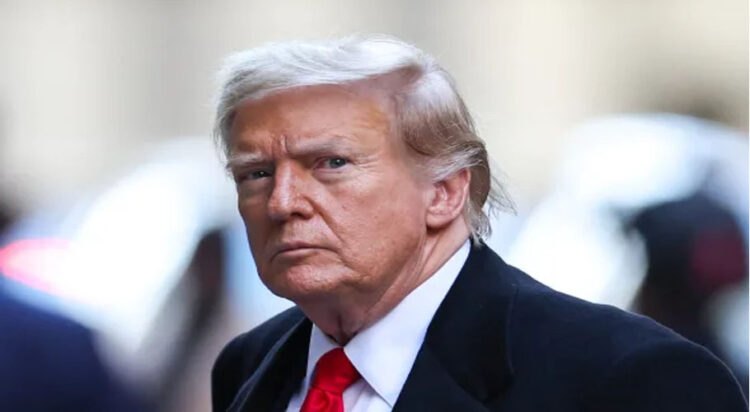President-elect Donald Trump has proposed controversial changes to U.S. immigration policy that could significantly impact millions of families, particularly those with mixed immigration statuses. In a recent interview aired on NBC’s Meet the Press, Trump revealed his plans to deport individuals living in the United States illegally, including potentially sending entire families back to their home countries.
Trump’s proposal primarily targets the estimated 4.7 million “mixed-status” households in the U.S. These households include at least one undocumented resident and at least one legal resident or U.S.-born citizen. Trump expressed concern about breaking up families, suggesting that the only solution to avoid family separation is to deport all members of a mixed-status household. “I don’t want to be breaking up families, so the only way you don’t break up the family is you keep them together and you have to send them all back,” he said during the interview.
The policy would likely affect a substantial number of children born in the U.S. to undocumented parents. According to the Center for Migration Studies, nearly half of the 2.8 million households with undocumented residents also house at least one U.S.-born child. This raises concerns about the potential consequences for children who may be legally in the U.S. but are at risk of being deported alongside their undocumented parents.
Trump’s stance echoes the approach of Tom Homan, his selected “border czar,” who has long advocated for mass deportations. The former acting director of U.S. Immigration and Customs Enforcement (ICE) has been a vocal supporter of strict immigration enforcement and has been critical of the Obama administration’s policies toward undocumented immigrants.
In the same interview, Trump indicated a willingness to work with Democrats on legislation to protect Dreamers—immigrants brought to the U.S. as children. He acknowledged that many of them are now successful adults and have integrated into American society. However, Trump also made it clear that he plans to address birthright citizenship, reaffirming his intention to eliminate it on his first day in office. “We have to end it. It’s ridiculous,” Trump said, although he did not provide specific details on how he would bypass the 14th Amendment, which grants birthright citizenship.
The 14th Amendment has been a cornerstone of American immigration law, granting citizenship to anyone born on U.S. soil, regardless of their parents’ immigration status. Trump’s proposal to end birthright citizenship has raised concerns among legal experts, who argue that such a move would face significant constitutional challenges.
The president-elect’s comments on mass deportations have drawn mixed reactions. While some supporters argue that it is necessary to uphold U.S. immigration laws, others have raised humanitarian concerns. Deporting millions of people, including families with U.S.-born children, could have far-reaching social and economic impacts.
As Trump prepares to take office, his administration is expected to prioritize a broad crackdown on illegal immigration. This could involve the deportation of millions of individuals, including those who have lived in the U.S. for years, contributing to the economy and society. However, the full scope of his immigration policy remains unclear, and it will likely face significant legal and political challenges once implemented.
The bottom line is that Trump’s proposed immigration policies, including mass deportations and ending birthright citizenship, could affect millions of people, raising questions about the future of immigration in the U.S. and the treatment of families with mixed immigration statuses.
















![This handout photo released by the IRGC’s official Sepah News Telegram channel shows smoke billowing from a site bombed by Israel in Tehran early on June 13, 2025 [Sepah News/AFP]](https://mmnews.tv/wp-content/uploads/2025/06/Israel-attack-on-Iran-350x250.jpg)

















